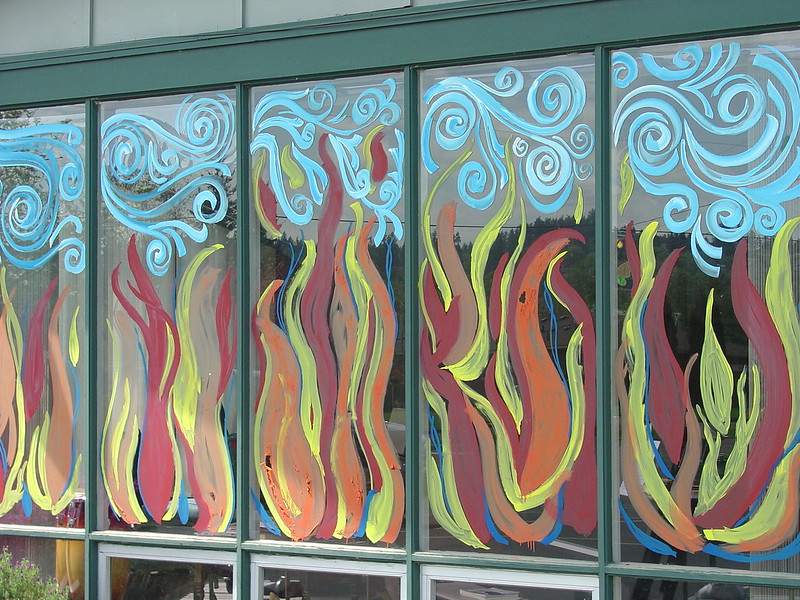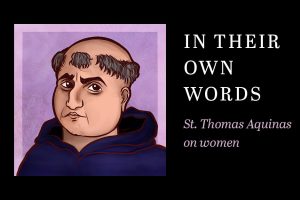“When the day of Pentecost had come, they were all together in one place.” (Acts of the Apostles 2:1)
There was a time, long ago, when everyone I knew was a hero. When the folks around me were entirely uninvested in money and deeply dedicated to the welfare of human beings. I once felt sure that the friends I ate breakfast with, prayed alongside, and labored with every day were God’s special agents in the world. Maybe the idealism of youth makes people seem larger than they are, their courage more romantic and remarkable. Or maybe youth’s idealism is real, and it’s the cynicism of later years that puts the lie on our perspective.
I’d forgotten what it was like to move among heroes until my friend John reminded me.
John is one of those casual heroes I lived with in a lay community near Manhattan’s Times Square in the 1980s. I met him, along with 60 other superior hearts that blazed like the sacred and immaculate ones in devotional images, during what was not my finest hour.
Back then, I was dropping out of graduate school—again. Academia had erased all passion from me. Accumulating more facts about random subjects while the world was in such need (plug in any year in any century and the assessment remains) seemed a sickening waste. Time to get involved! Time to make a difference! Time for something radical!
Perhaps young people in every generation have this instinct. I hope so. I was so itchy to seek Meaning with a capital M that I couldn’t bear to open another textbook or attend another seminar. So I joined Covenant House, an agency founded in New York City to rescue unhoused teens from the streets. More specifically, I joined the volunteer group that pledged a year of service to the agency, to prayer, and to community.
The 60 of us lived in a tenement proudly incorporated as Covenant One. Covenant House agency was, by then, a corporation expanded to Guatemala, Toronto, and Houston, with other branches to follow. Although few of us were trained social workers, overnight we became child-care caseworkers addressing one of society’s most intractable problems: what to do with teenagers no one is providing for. With orphanages a thing of the past and foster care deeply underfunded and understaffed, what happens to unclaimed adolescents is a bleak story.
We young idealists, mostly fresh from college, traded dorm life for lay community, classrooms for casework, and late-night parties with our peers for long night shifts on duty at the shelter.
We learned bitter lessons about how the world really works—or doesn’t—for kids born into poverty, lost in public schools, victims of neglect and abuse everywhere they land. In community, we volunteers forged a deep bond as we struggled to “get involved” and “make a difference” in an abandoned substructure of the same society that held so much more promise for children of more privileged circles—like us.
This was our Pentecost: a time of wind and flame, inspired speech and bold action. There were even a few miracles from time to time. Young people lamed and maimed by traumatic upbringings got up and walked out of their bleak stories into better ones. Some blinded by shortsighted possibilities opened their eyes to hope and saw farther. We caseworkers did our best to proclaim the gospel of love, compassion, and care. Sometimes, we were believed.
Catherine of Siena counseled her audiences: “Be who you were created to be, and you will set the world on fire!” If you’ve experienced Pentecost in a vital sense yourself, you know that it’s you, as much as the world around you, which is ignited by the holy fire that is set. That year, my heroic friends and I became living flames flickering against a tiny corner of society’s darkness. It was a graced season.
This was 40 years ago and more. While I became irrevocably sensitized to factors that lead to systemic failure of families, schools, and social agencies, the experience enriched my understanding but didn’t alter my trajectory much. I returned to academia, finished a degree in theology, and gravitated to church work. I volunteered occasionally in women’s shelters, dealing with an older version of the kids we saw at Covenant House. But mostly I did parish ministry: safe, sanitary, and far less desperate, where the stakes hovered around sacramental programs, liturgy training, and fundraisers.
I’m sorry to say the decades I served the church in formal ministry rarely generated a sense of moving among heroes. Because for that there must be Pentecost, and without that rousing flame, what you have is the shell of religious programs and practices.
Here’s where my friend John comes in. My stint in lay community didn’t dissolve utterly when our volunteer years were over. Many of us who shared such poignant experiences in our 20s stayed in touch, though the relationships were largely reduced to Christmas cards. John alone persisted in trying to get some of us back together in the same room.
My friend John can be persuasive. By which I mean annoying, relentlessly so. John wrote, texted, insisted. He rented a beach house in New Jersey and begged us to share it with him for a week. A handful of us—Dana, Martin, Donna, Steve, Tom, Celine, Mary Fran—eventually caved in. We came from all over and sat together on the wide wraparound porch of a very charming beach house. What had the intervening decades made of us?
We silently viewed the changes of the years on faces and bodies. And then we began to tell stories. About our passion since those days. The hours we spent together that weekend were electrifying. It seems all of those once-young heroes never took off their capes. My friends have all remained close to marginalized groups: working with adolescents, the unhoused, the sick, substance abusers, and others who suffer when systems meant to support us fail. Back in community once more, I could believe in heroes again.
This month, the jubilee year calendar honors people involved in many significant groups: ecclesial movements, associations, and new communities (June 7–8), the Holy See (9), sports (14–15), government (20–22), seminarians (23–24), bishops (25), priests (26–27), and the Eastern churches (28).
That first grouping must not be overlooked. As we honor and bless members of our local communities who fall into these many categories, please pray for the mostly invisible young people who are offering a bit of their lives to some volunteer service right this minute. And please encourage the young people you know to be heroes, to dream impossible dreams, to fan the flames of love and compassion while they still burn within them.
I’m reminded of The Big Chill, an old movie about a group of former idealists unexpectedly reunited at the funeral of a friend. There they discover, to their horror, that they’ve become sellouts to the social evils they once fought so passionately against. This doesn’t have to be so, as my own Big Chill weekend revealed. Perhaps what was once kindled in our younger selves is still there, waiting for the embers to be reignited. It’s never too late, my friends, to set the world on fire. As Jesuit poet Gerard Manley Hopkins reminded us, “Because the Holy Ghost over the bent / World broods with warm breast and with ah! bright wings.”
Image: Flickr / Robin















Add comment